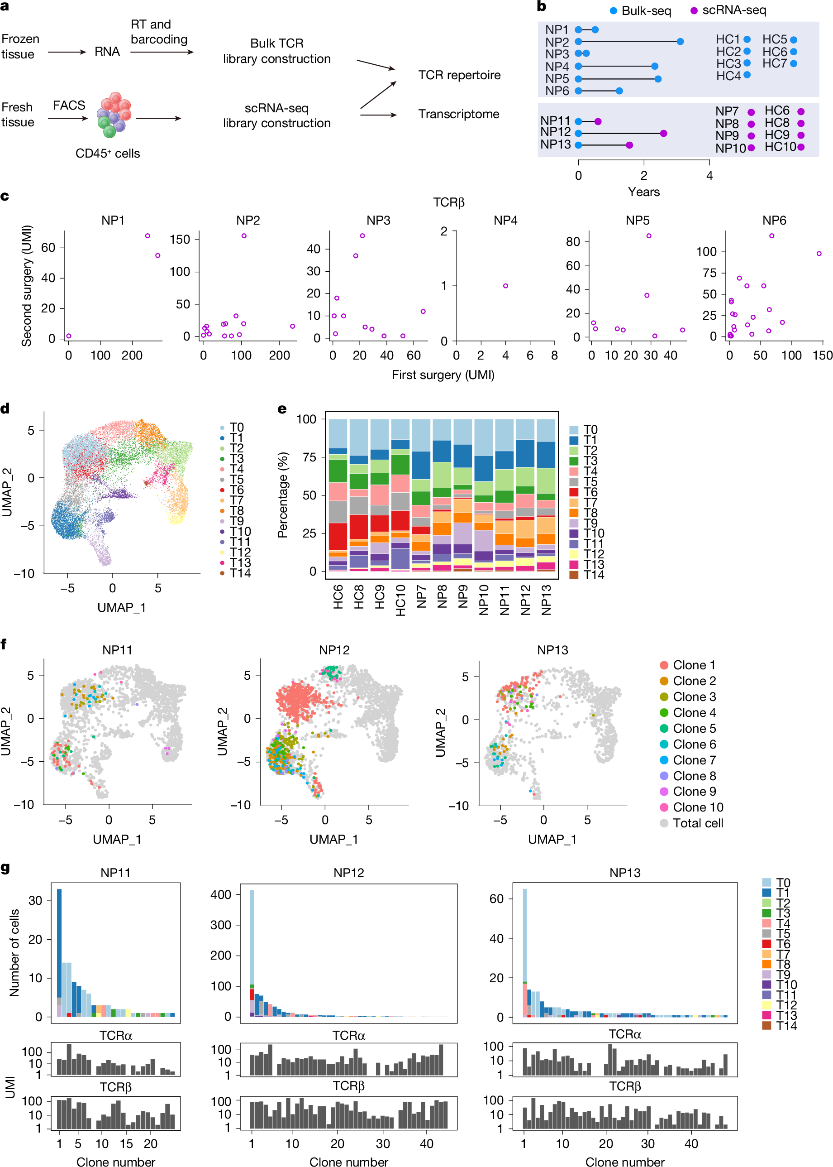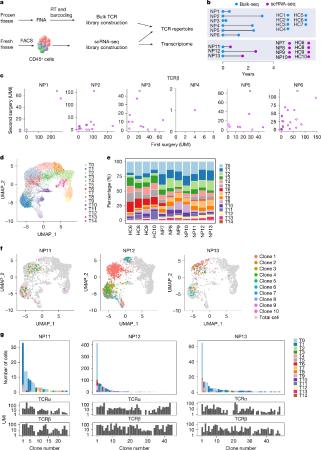Researchers identify T cells causing chronic sinus inflammation

(Photo/Nature)
A groundbreaking study published in Nature on Jan 16 uncovers a novel subset of memory CD8+ T cells, which are capable of "remembering" an antigen upon subsequent encounters, leading to a faster and more effective immune response. The study reveals how these cells play a role in the recurrent flare-ups of chronic rhinosinusitis, offering new insights for treating this often intractable disease.
The landmark study was a collective work led by Professor Qi Hai from Tsinghua Medicine, Professor Zhang Luo from the Department of Otorhinolaryngology-Head and Neck Surgery of Beijing Tongren Hospital, and Associate Professor Wang Jianbin from the School of Life Sciences at Tsinghua University.
By analyzing nasal polyp tissue from patients, the research team has identified an unusual group of memory CD8+ T cells that secrete granzyme K—rather than the classic granzyme B—and appear in the polyp tissue each time the disease flares up. Granzymes are molecules used by immune cells to help eliminate unwelcome cells.
The team's findings indicate that these T cells seem to recognize allergens and viruses that enter the airways. The granzyme K can directly activate the complement system without antibodies, exacerbating tissue damage and amplifying inflammation.
These granzyme K-producing T cells continually migrate from peripheral blood into nasal tissues, causing recurrent flare-ups and turning what might have been a minor disease into a persistent, hard-to-cure condition.
The key to their discovery was finding granzyme K and the memory CD8+ T cells that produce it as important factors causing relapses in stubborn chronic rhinosinusitis with nasal polyps. These could also be vital signs to predict how the disease will develop and how well treatments might work.
Moreover, the researchers explored the potential of treating this disease by inhibiting granzyme K. Experiments in animal models revealed that removing or inhibiting granzyme K in CD8+ T cells significantly reduced inflammation and led to effective treatment outcomes.
Chronic rhinosinusitis is a common chronic nasal condition that affects hundreds of millions of people worldwide. The current treatments don't work very well in controlling the recurring symptoms.
The study presents a new immunological mechanism for inflammation, laying the groundwork for developing innovative treatments.
Guo Yanqi contributed to the story.

